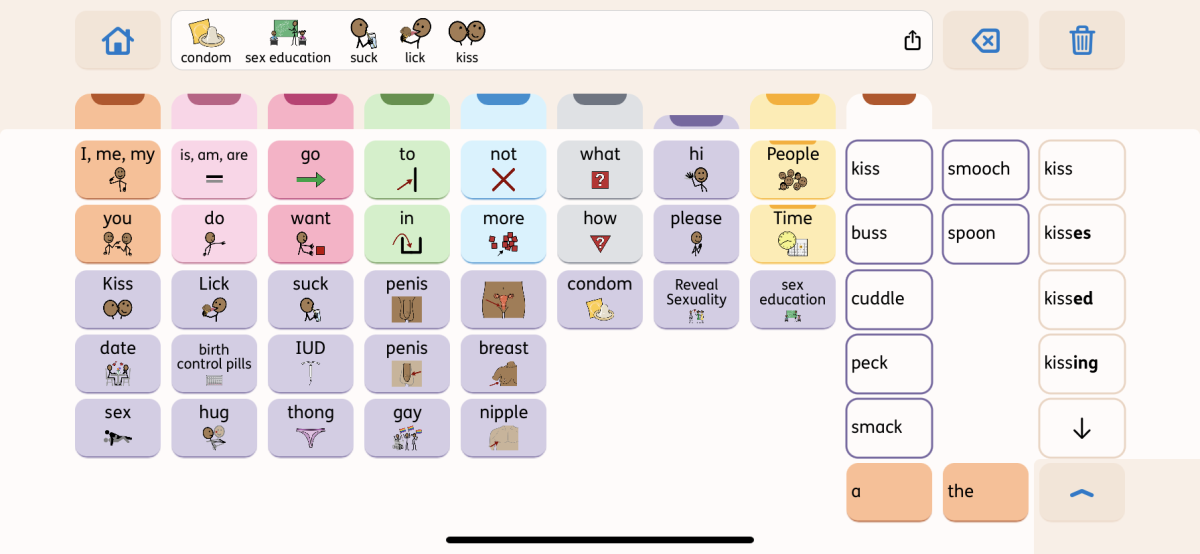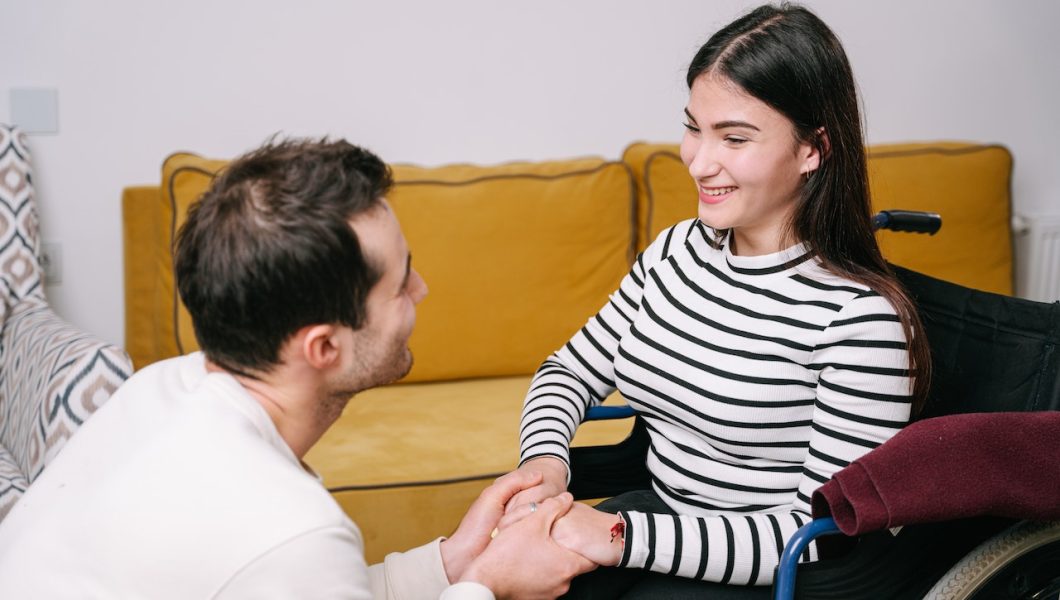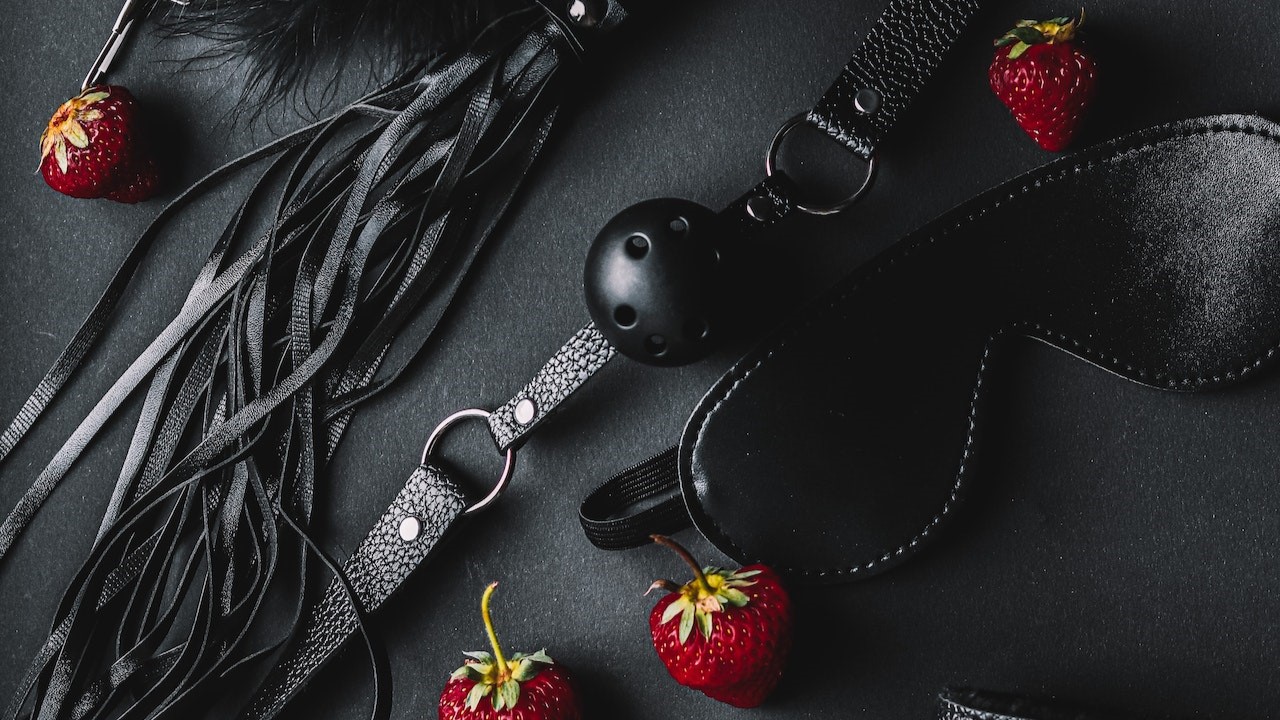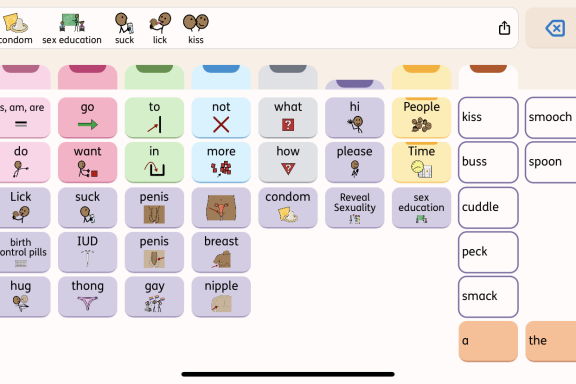Disabled adults need more support from friends and family to form romantic and sexual relationships, reveals a study on disabled lovers conducted by researchers at Flinders University in Australia.
Their findings, published in the journal Augmentative and Alternative Communication in March 2022, were based on extensive interviews with nine disabled adults aged 21 years or older. The participants had also been living with varying physical and communication disabilities since childhood and relied on support from tech devices and human aides. Seven of the nine said they live with cerebral palsy.
Their responses showed that having a disability can make dating and pursuing sexual relationships challenging—not least due to how non-disabled friends and family members may react negatively to the idea.
As disabled lovers often rely on tech or human assistants to communicate, stereotypes about sex and disability and a lack of support raised barriers to them forming intimate relationships.
Sex and AAC
The study participants were also long-time users of Augmentative and Alternative Communication systems (AAC), which is a phrase that describes all the ways people may communicate without speaking. AACs can be defined as either aided or unaided.
Aided AAC are assistive technologies such as a laser pointer and spelling board pairing or speech-generating software. Unaided AAC, on the other hand, involve communication methods that employ sign or body language.
During the interviews, participants reported their AAC use wasn’t always effective or even available during moments of physical intimacy for disabled lovers.
“It’s hard to communicate when we are in bed together,” Katie told the researchers, “when I don’t have my communication [device].”
Attempting to get around this limitation, she and her partner resorted to using mostly yes-or-no questions or, for more complex ideas, a spelling board.
As a result of communication barriers, several female-identified participants shared they had to rely on and trust their non-disabled partners.
“It takes a very special man to make love to a woman with CP,” Jasmine said, referring to Cerebral palsy, “without hurting her […] It helps if he is really very, very open about sex, as he must rely on both her bodily responses and the feedback she gives afterward.”

Related Read: Dating Sites and Apps for People with Disabilities
When ‘helpers‘ do the opposite
As with caregivers, participants shared when well-meaning friends got in the way or made an already awkward situation worse.
When a male-identified person attempted to dance with Katie at a concert, her friends and a security person “chased him away.”
“I hadn’t been able to give him my name. […] I felt like I’d done something bad.”
After having consensual sex with one of her male-identified friends, Emma said her other friends reacted badly. They “had a kangaroo court scenario within their rat pack and he was punished for having sex that I initiated.”
She adroitly emphasizes her their behavior was rooted in the “notion of pwd [people with disabilities] not being sexual beings, or being overly sexualized […] is just another example of oppression.”
Sexual ableism facing disabled lovers
Throughout the study, the participants spoke of internalized sexual ableism. For example, a respondent named Sophie was unpleasantly surprised after catching a glimpse of herself and her partner in a store window, “I saw my body as the world must see me.” An incident that took her a long time to recover from.
However, many disabled lovers also shared how they had managed to at least partially change how they thought about themselves.
Online dating was one technique. Jasmine discovered using them gave her a welcome sense of being in control.
Telling of someone she met online, she said, “I got to know him without anyone else getting involved. Nobody has managed to take him away from me yet.”
Oscar added that experience had taught him to be upfront when meeting someone.
“So, if someone wanted to meet me today, like I would tell him I have cerebral palsy and I would ask him if he knows what it is. […] because I don’t want to waste my time but most people are really good about it. There’s always an odd one who is a little bit uncomfortable.”
AAC for sex education

Proloquo2Go is an example of an AAC app that allows “explicit” symbols related to sexual health and intimacy to be added manually. While it is possible to use Proloquo2Go for sex education purposes or for communication between disabled lovers, its scope is limited.
Last updated on February 23, 2023




